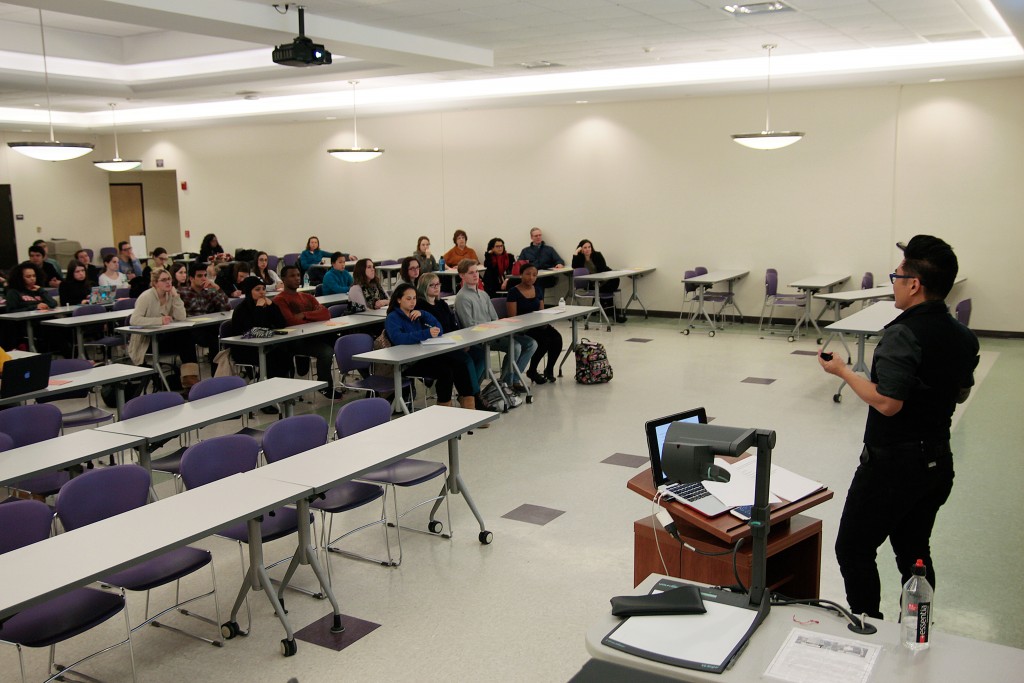Over 75 Binghamton University faculty and students gathered in the Old University Union on Monday night to learn about eating disorder awareness and prevention.
The program, titled “Eating Disorders Do Not Discriminate,” focused on eating disorders and how they can impact all individuals differently.
The program was initiated by a panel of student speakers who made up a subgroup of the Eating Awareness Committee (EAC), a University-wide group that has spread information on disordered eating issues since 1998. The panel first introduced speaker Norman Kim, a psychologist who graduated from UCLA, and later took the stage at the end of the presentation to reflect their personal stories.
“Eating disorders are not disorders of being, they’re not disorders of the body, but rather they are anxiety disorders,” Kim said. “There is no reason to think that [eating disorders] would be limited to any certain group. They can affect anyone, regardless of gender, age, size, ethnicity, sexual orientation — none of those factors matter.”
Kim has been working and studying eating disorders for over 15 years, and has experience both treating sufferers and teaching about the disorders.
In his presentation, he explained myths surrounding eating disorders, such as assumptions that they are choices or the result of extreme dieting. Kim said the disorders arise as result of a number of factors, one of which is genetics.
“The picture of the eating disorder started to become, and still remains so, as an illness of girls who come from wealthy families that have a lot of pressure placed on them,” Kim said. “But none of these factors existed in plenty of other cultures, yet the eating disorders are still present. Eating disorders are strongly biological and genetic illnesses, meaning that we can establish clear hereditary patterns.”
Following Kim’s presentation, members of the student panel discussed their struggles with eating disorders. Tommy Landes, a junior majoring in biology, shared his battle with anxiety, depression and suicide.
“In the beginning of high school, I began to notice a decrease in my self-identity,” Landes said. “I didn’t really know who I was. I would come home from school, start crying and want to disappear. There wasn’t a day where I wouldn’t go in front of the mirror, and suck in my stomach to see how skinny I could get. I remember thinking that maybe if I could keep sucking my stomach in, I could physically disappear. Obviously it was illogical, but to me, it was comforting.”
Kelly Keill, a senior majoring in integrative neuroscience, said she took to heart what she learned from sitting in.
“Eating disorders affect a large portion of the population,” Keill said. “I know a few personal friends that are affected by eating disorders. As Norman Kim explained, they affect a rather large part of the population, with two to three percent of girls and women being diagnosed with just bulimia. It’s important to address them and get them the help they need.”
This awareness that Keill described is just what event coordinator Jen Wegmenn said she hoped the event would convey.
“Our mission is to get this to spread and make it known to the public,” Wegmenn said. “Everybody is susceptible. Individuals tend to deny the actions or behaviors because they don’t fit the criteria, meaning they don’t seek help, which in turn can snowball and turn into something worse. Eating disorders indeed ‘don’t discriminate’ and today was just a step in trying to convey that.”



